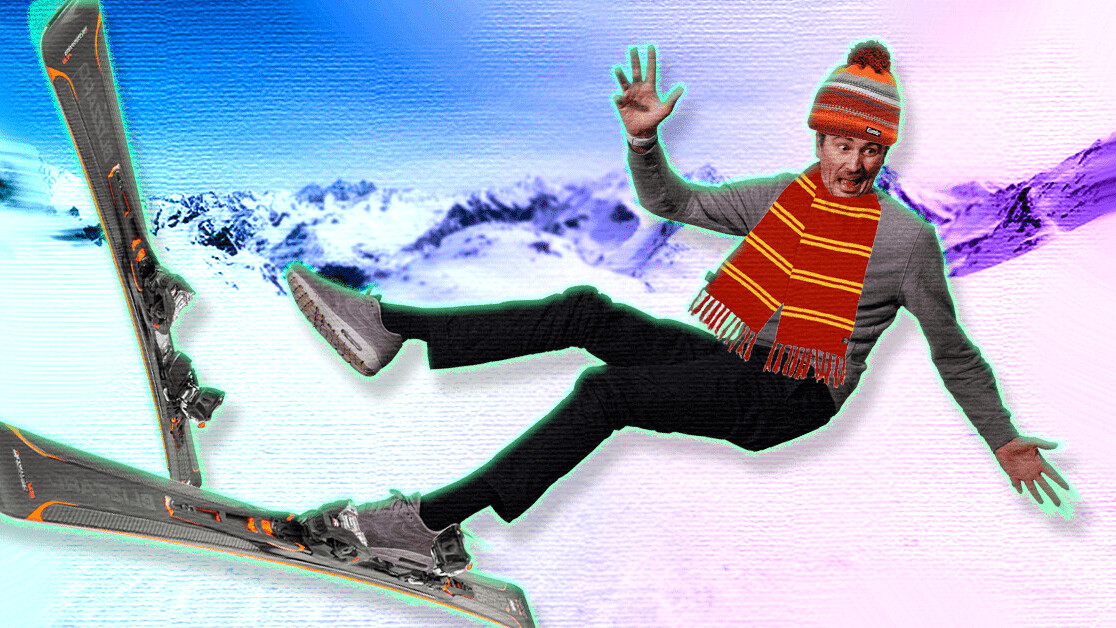
Boris is the wise ol’ CEO of TNW who writes a weekly column on everything about being an entrepreneur in tech — from managing stress to embracing awkwardness. You can get his musings straight to your inbox by signing up for his newsletter!
For years now, I have been skiing with the same guide in Chamonix, and if circumstances allow, I’ll ski with him again this year.
I look forward to skiing with him, but there’s one particular moment that fills me with dread every year…
At some point, he’s going to start talking about the three steering elements — as he’s done every year I’ve visited Chamonix. Steering is an essential part of skiing, so if you want to become a good skier you need to dedicate a lot of time and attention to mastering these three techniques.
That’s why every year I spend a whole day practicing each of them under my ski instructor’s guidance.
Now, you might be wondering what the three important steering elements are… but I wouldn’t be able to tell you, even with a gun to my head.
[Read: Neural’s market outlook for artificial intelligence in 2021 and beyond]
Weird, right? But that’s just how my mind works.
I’m not stupid (or at least that’s what I’d like to believe), but my mind is very picky about what it chooses to remember and what it doesn’t.
My theory so far is that I’m focusing on his advice, as a whole, and applying this directly to my skiing without actually thinking about the detail or his exact words.
I have a similar thing when it comes to remembering stuff during the day. Here’s what usually happens: I do something and decide to remember it for later. Later, I will remember that there was something I was supposed to remember. I just don’t know what.
But that’s okay, because usually there’s a faint emotion somewhere, lingering in the back of my mind. I then find my way back to the thing I’d forgotten by tracing how the emotion was associated to it — and voilà! — I remember.
For example, if I remember I have forgotten something — and it has left me feeling good and excited — I’m reminded of that ice cream I made and put in the fridge earlier. Or, if the emotion was dread and discomfort, it reminds me I meant to remember to buy toilet paper…
Turns out I’m not alone in having a weird way to remember things. Over time I’ve started to notice all the small memory tricks people around me have.
One trick I’ve seen people use is to associate memories with rooms in a house. They’ll store a phone number in the hallway, a birthdate in the bathroom, and a meeting they need to remember in the attic.
Other use colors or songs. One way to remember things is to make a drawing while you try to memorize it. Looking at the picture will bring back the memories you stored.
My conclusion is that everybody stores their memories in their own unique way. And once you realize that, it becomes easier to make people around you take notice of what you want to convey to them.
It basically boils down to two tips.
First up, instead of just telling them something, it helps to realize we all remember and absorb information differently — so cater to this.
Suppose you need to make a presentation and make people remember the information in it. In that case, you might try using colors, images, music, or anecdotes to say the same thing in different ways — or allow people to take notes, draw, or stare out the window while you do it.
The second thing you could do is… well I’ve forgotten it. But don’t worry, I feel great just thinking about it — so it must have been a great point.
Can’t get enough of Boris? Check out his older stories here, and sign up for TNW’s newsletters here.
Get the TNW newsletter
Get the most important tech news in your inbox each week.




